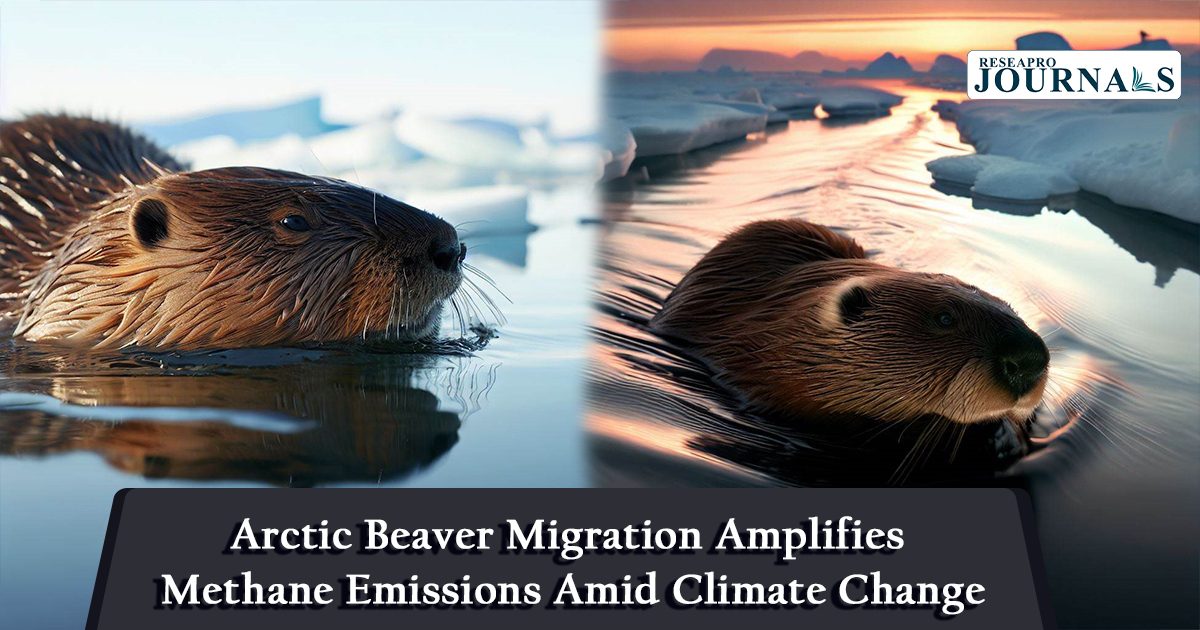The migration of beavers into the Arctic tundra due to climate change is leading to increased methane emissions. Their dam-building activities create ponds that lack oxygen and contain organic sediment, resulting in methane release as the material decomposes, contributing to greenhouse gas emissions.




